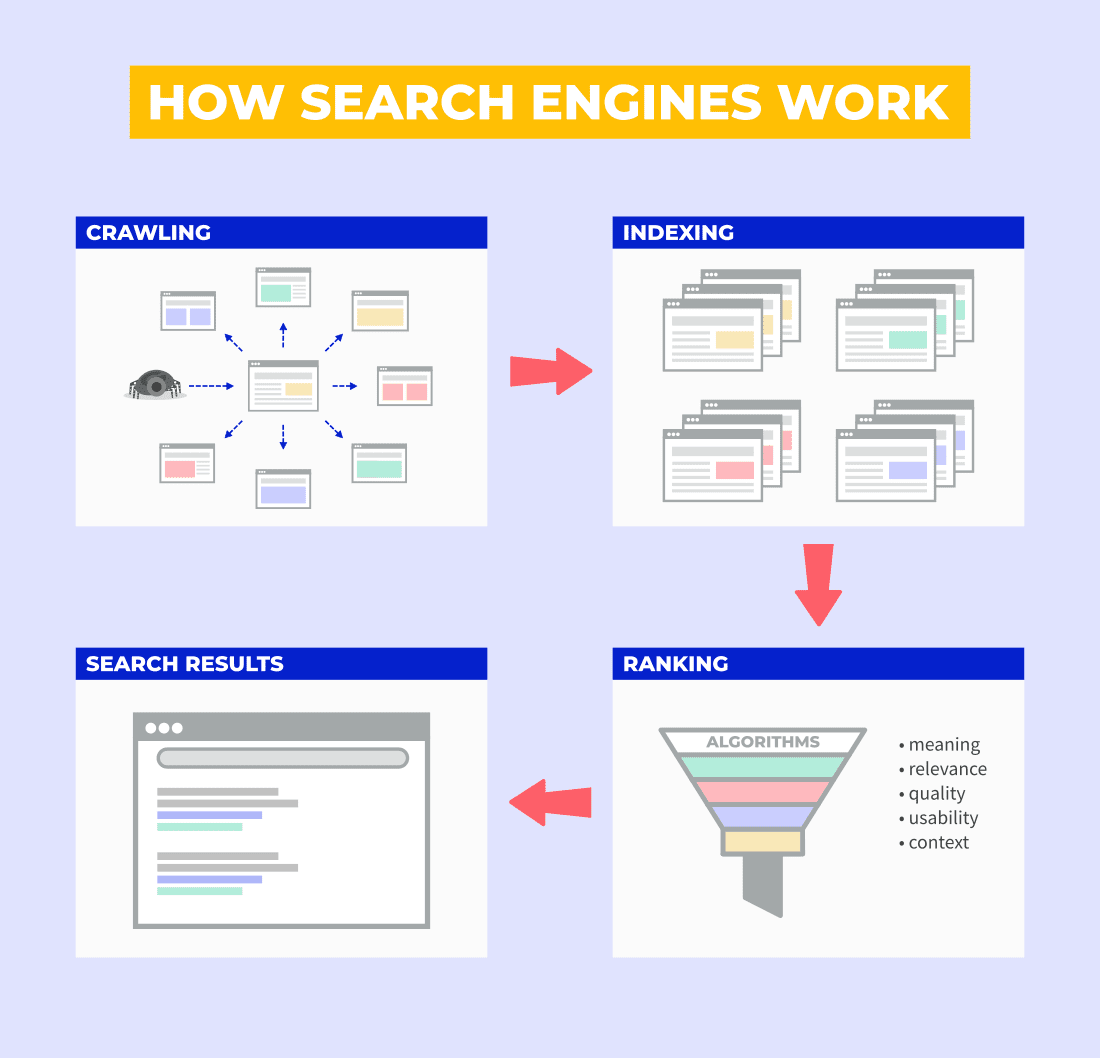In today's digital age, search engines have become an essential part of our lives. Whether we want to search for a product or find answers to our questions, search engines are our go-to tool. But have you ever wondered how search engines work? In this article, we will explore the inner workings of search engines, including their algorithms, ranking factors, and how they deliver search results.
 Image: Mangools
Image: Mangools

How Search Engines Work:
Search engines are complex software systems designed to find and organize information on the internet. When a user enters a query into the search bar, the search engine's algorithm goes to work, crawling through billions of web pages to find the most relevant results. Here's how it works:Crawling:
The first step in the search process is crawling. Search engines use bots, also known as spiders or crawlers, to scan web pages and index their content. These bots follow links on web pages, collecting information about each page they visit, including the text, images, and links.Indexing:
After a web page has been crawled, it is then indexed. Indexing is the process of organizing the information gathered during the crawling process and storing it in a database. The database contains a copy of all the web pages that the search engine has crawled and is used to deliver search results.Ranking:
Once a user enters a search query, the search engine's algorithm goes to work, analyzing the indexed pages to determine which ones are most relevant to the query. This is where ranking factors come into play. Search engines use a variety of factors to determine the relevance and importance of a web page, including:- Content relevance
- Page authority
- Domain authority
- Backlinks
- User experience
- Social signals
